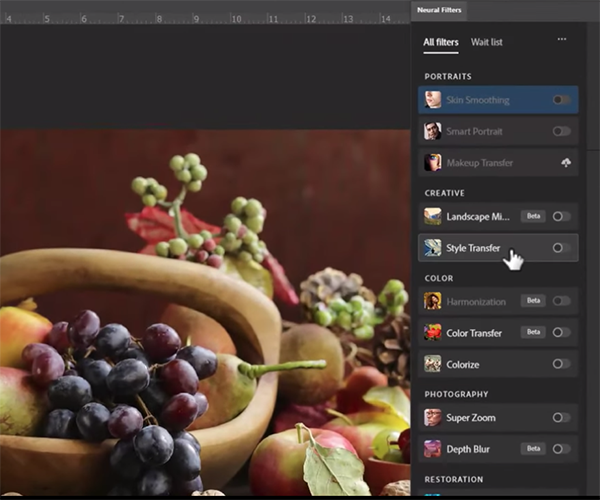Photoshop Basics: Using STYLE TRANSFER to Create Amazing Photos (VIDEO)
Today’s eye-opening Photoshop tutorial is super interesting for a couple reasons: First, you’ll learn how to use an unfamiliar tool that can deliver spectacular results. Then there’s our grumpy instructor who’s miffed because he didn’t know about this transformative technique until recently.
Stephen is a creative photo artist who prides himself in thinking outside the box and using unique shooting and editing techniques that really make his work stand out. This episode begins with an unexpected rant which we won’t describe because it’s amusing to watch. Let’s just say it has something to do with artificial intelligence—commonly referred to as AI.
The topic of this episode is a Photoshop technique called Style Transfer, and once Stephen calms down he explains everything you need to know. He illustrates the method with some very convincing imagery, and he introduces the process with some important notes on resampling—including how working at a lower resolution can prove to be beneficial.

The Style Transfer mode is activated by enabling a button in Photoshop’s Filters panel. Once you do that there are a couple of options—one known as “Image Styles” and the other called “Artist Styles.” There are a variety of effects within each category, and Stephen’s goal is to illustrate how the technique works so that you “can run with it and do a bit of creative experimentation.”
Once you choose a style that suits your fancy, Photoshop goes through a rendering process and there’s a status bar slider under the image for keeping track of the progress. He then takes a closer look at the various styles available so that you’ll have a better idea of which ones perform best for different types of photos and understand what to expect.
As you’ll see, there’s a dialog box with basic sliders that enables you to adjust and refine whatever style you choose. This post-processing method is not only remarkably effective, but it’s also a lot of fun to use. The only problem you’re likely to encounter is that Photoshop’s Style Transfer tools can be very addicting once you get started.

Be sure to visit Stephen’s instructional YouTube channel to find more tips and techniques for adding a unique flare to your images
We also suggest watching the tutorial we featured recently with another image-editing expert who demonstrates five pro techniques for avoiding blown-out highlights when shooting and editing outdoor photographs if challenging light is the name of the game.





